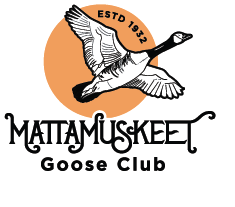If you’re brand new to duck hunting, it may feel a little overwhelming at first. With all the tools and the lingo, not to mention the hunting rules and etiquette, there’s a lot to learn. But everyone has to start somewhere. Whether you have a more experienced hunter showing you the ropes or you’re on your own, we’re here to help you get a handle on the basics. So grab your rubbers and your waders, and get ready to jump in as we explore the fundamentals of duck hunting.
Essential Gear for Duck Hunting
Naturally, the first and most important thing you’ll need for the hunt is a gun. It’s your greatest responsibility as a hunter to steward the firearm well and keep up with routine maintenance. Regular cleaning is a critical part of ensuring that the gun performs as expected and won’t compromise the safety of those around you.
The proper clothing is essential to the success of duck hunting. Unless you want to frighten your prey, you’ll need to acquire camouflage that blends in with your surroundings. Waders and rubber boots are also recommended for complete waterproofing, especially when hunting waterfowl like ducks.
Decoys and duck calls are two more essential items in any hunter’s toolbox. Used in tandem, these can help attract ducks to an area, luring them into shooting range.
Safety Precautions
When dealing with firearms, it’s critical that safety be your number one priority. For example, be sure to keep your guns unloaded until the hunt begins, to reduce the risk of injury or fatality. Similarly, make sure they are properly unloaded and stored before leaving the blind at the end of a hunt.
Wearing eye and ear protection can help minimize damage from loud sounds or flying debris. If you’re hunting with a retriever, be mindful of where they are at all times to avoid accidental shootings. It will certainly help to train them to remain in the blind until called upon.
Ethics & Etiquette
Hunters often arrive on site early in the mornings. If you must arrive later, avoid disrupting your fellow duck hunters, and set up a fair distance away to prevent unnecessary competition. You should try not to duck call too loudly when sharing an area, thus enticing them away from other hunters. When you leave the blind at the end of the hunt, make sure it’s better than when you got there. Pick up any trash or litter that may ultimately negatively affect the local wildlife.
Mattamuskeet Goose Club: For Hunters of All Skill Levels
Whether you’ve been hunting for decades or you’re brand new to the sport, we’re so glad that you’re here! We welcome you to reach out directly with any further questions or comments. Interested in becoming a member? Join the Mattamuskeet Goose Club Restoration Society today to be a part of a Southern legacy!












